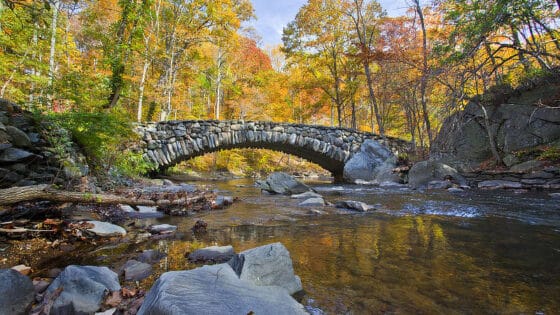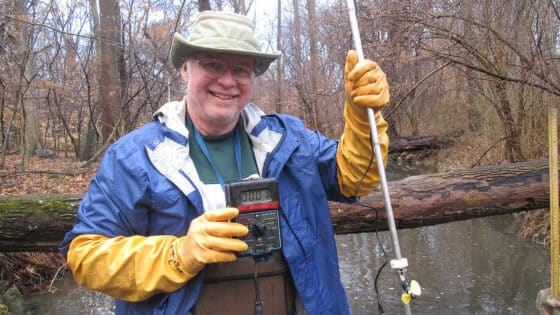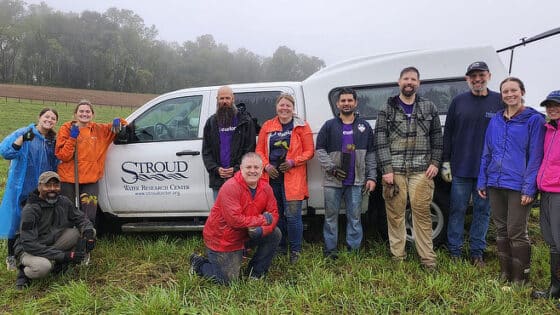Volunteers enjoyed spending a beautiful, socially distanced afternoon outside in the country, while enjoying the sight of a bald eagle soaring overhead as they helped Stroud Water Research Center to restore approximately 2.4 acres along a tributary of Doe Run Creek in Unionville. More than 50 volunteers planted nine species of trees which will restore the stream banks, create habitat corridors, and help treat runoff from a nearby busy road.
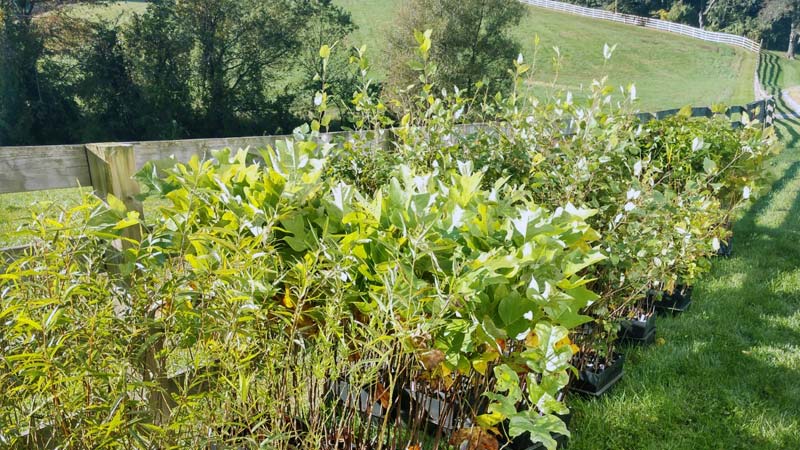
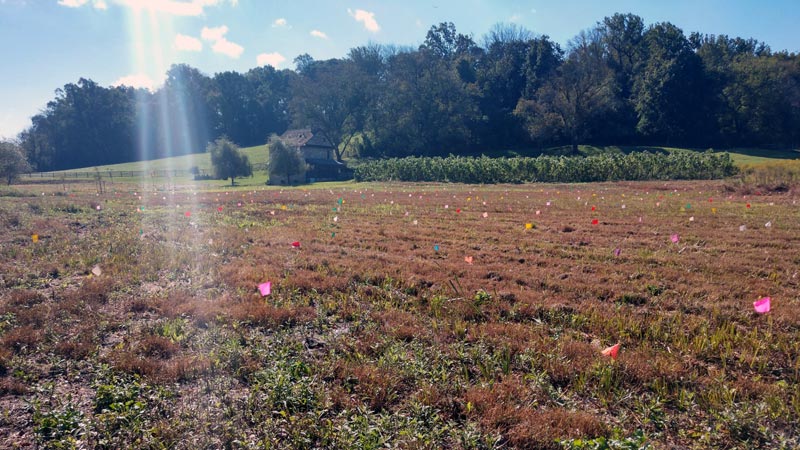
Planting forested buffers is one of the best management practices used by the Stroud Center’s Watershed Restoration Program to help farmers and landowners better protect their streams. In addition to the protection the buffer will provide the stream, the Stroud Center will be using this planting to study the growth rates and survivability of trees in two different types of tubes. Trials like this help the Stroud Center’s scientists and restoration group to continue to improve success rate of plantings.
“Planting trees is one of the many ways we help to protect our streams and rivers,” says Dave Arscott, Ph.D., executive director of the Stroud Center. “It was wonderful to see so many families and members of the local community joining together to help us with this effort.”
Funding for this project was provided by Colonial Pipeline and TreeVitalize. Refreshments were provided to volunteers by Herr Foods. To learn more about upcoming volunteer opportunities, research projects, and Stroud Center events, visit www.stroudcenter.org/events.
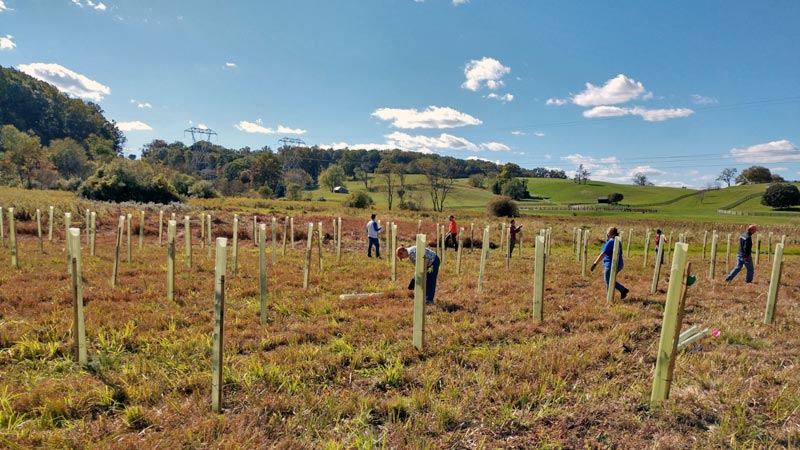
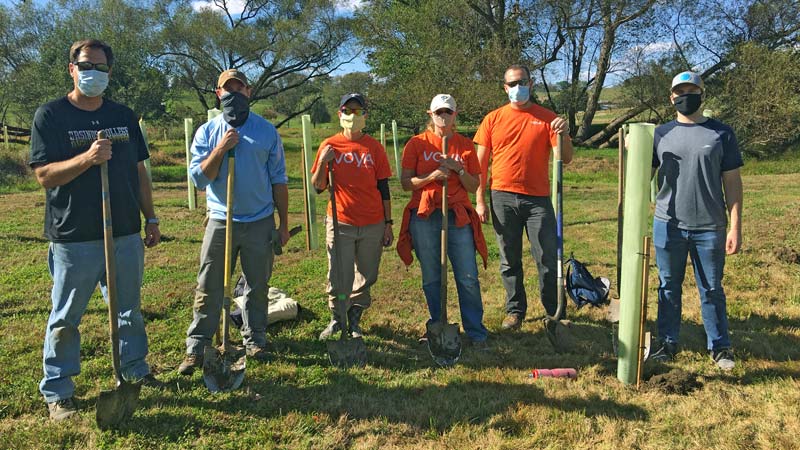
About Stroud Water Research Center
Stroud Water Research Center advances knowledge and stewardship of freshwater systems through global research, education, and watershed restoration and to help businesses, landowners, policymakers, and individuals make informed decisions that affect water quality and availability around the world. Stroud Water Research Center is an independent, 501(c)(3) not-for-profit organization.

